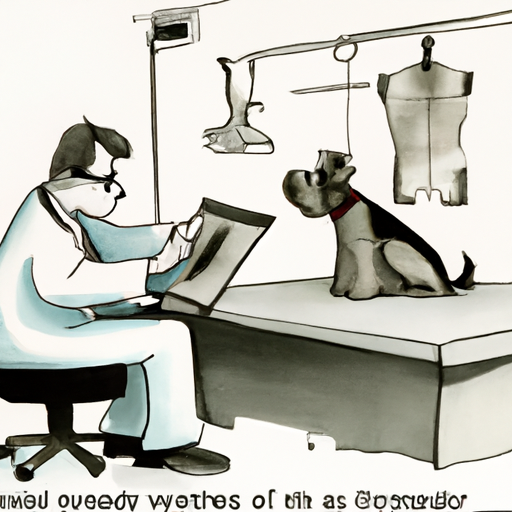Understanding the Condition
A collapsed trachea is a common condition among dogs, especially small and toy breeds. It tends to affect older dogs but can occur at any age. The trachea, or windpipe, is a tube made up of rigid rings of cartilage through which air is transported to and from the lungs. When the trachea collapses, it becomes difficult for your pet to breathe. It can be a scary situation for both you and your pet, but understanding the condition is the first step towards helping your dog navigate through it.
Recognizing the Symptoms
The following are some common signs of a collapsed trachea in dogs:
- A honking cough
- Difficulty breathing or shortness of breath
- Exercise intolerance
- Blue gums
- Fainting
It is crucial to consult your vet if your dog exhibits any of these symptoms. They can diagnose the condition through physical examination, X-rays, or a tracheoscopy.
Treatment Options
Treating a collapsed trachea in dogs often involves a combination of medical management and lifestyle changes. Here are some treatment options:
- Medication: Your vet may prescribe cough suppressants, bronchodilators, or corticosteroids to lessen inflammation and ease breathing.
- Weight management: Overweight dogs are more prone to respiratory issues. So, keeping your dog’s weight in check can help manage the condition.
- Surgery: In severe cases, surgical intervention may be necessary. The procedure involves placing a prosthetic ring or stent to support the trachea.
| Treatment | Description |
|---|---|
| Medication | Prescribed by a vet to ease symptoms |
| Weight management | Helps to lessen respiratory strain |
| Surgery | Used in severe cases to support the trachea |
Preventive Measures
Prevention is always better than cure. Here are some preventive measures you can take:
- Avoid irritants: Smoke, dust, and other pollutants can worsen your dog’s condition. Try to keep your home’s air clean.
- Use a harness: Instead of a collar, use a harness to walk your dog as it puts less pressure on the trachea.
- Keep your dog calm: Excitement and anxiety can exacerbate the coughing, so try to keep your dog’s environment low-stress.
Caring for a Dog with a Collapsed Trachea
Caring for a dog with a collapsed trachea can be challenging, but your love and dedication can make a significant difference in your pet’s quality of life. Ensure you follow your vet’s advice, keep up with the necessary medication, and provide a safe, stress-free environment for your dog. Your patience and understanding will go a long way in helping your dog cope with this condition.
FAQ
Q: Is a collapsed trachea in dogs painful?
A: It can be uncomfortable and cause difficulty breathing, but it is not typically painful.
Q: Can a dog live with a collapsed trachea?
A: Yes, with the right care and treatment, a dog can lead a comfortable life with a collapsed trachea.
Q: Can exercise help a dog with a collapsed trachea?
A: Moderate exercise can be beneficial, but it’s important not to overdo it as it may cause breathing difficulties.
Q: What should I feed my dog with a collapsed trachea?
A: A balanced diet is essential. If your dog is overweight, your vet may recommend a weight management diet.



